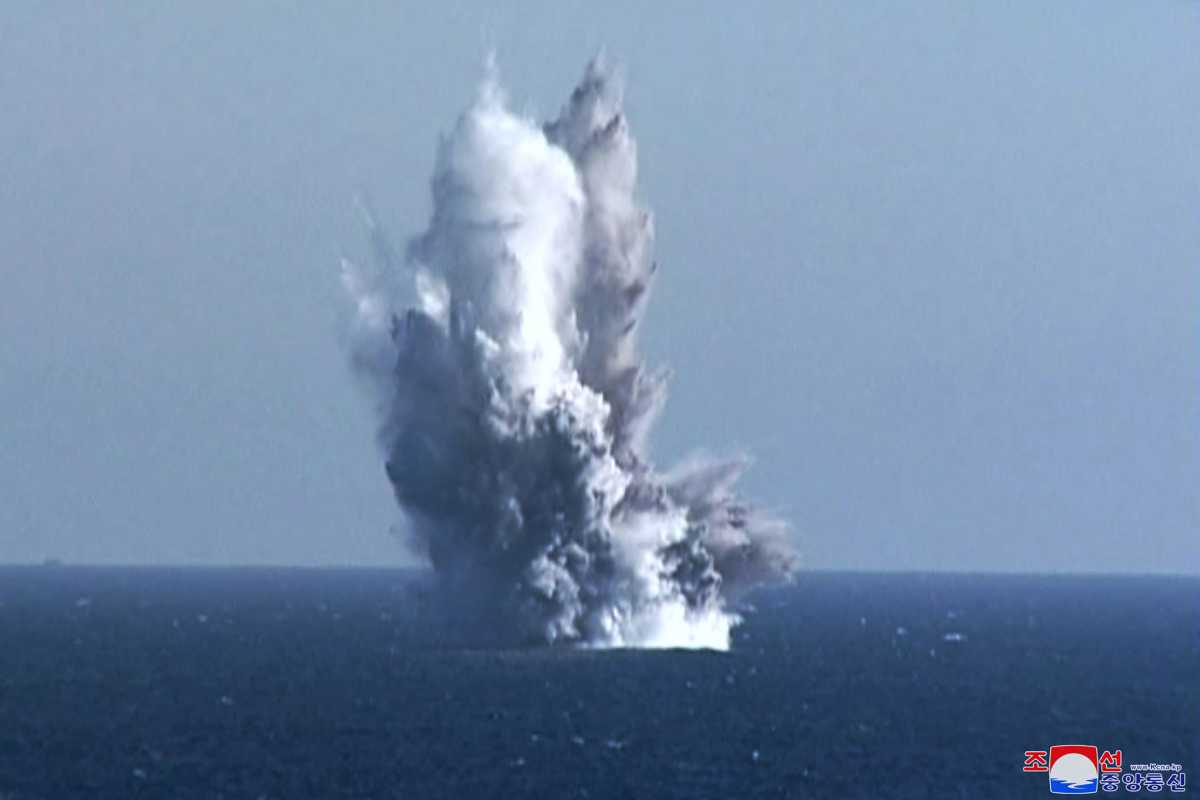World
North Korea Tests Underwater Nuclear Weapons System in Response to Drills

North Korea has reportedly conducted a test of its underwater nuclear weapons system in response to joint military drills by the United States, South Korea, and Japan this week. According to state media KCNA, the underwater drone, known as the ‘Haeil-5-23′ system, was tested off the east coast. However, there is no independent evidence of the tests taking place, and South Korea has previously stated that the North’s claims about the drones’ capabilities were exaggerated.
South Korea has labelled the reported tests as a provocation, stating that it threatens peace on the Korean Peninsula and the world. The country’s defence ministry has warned that if North Korea directly provokes them, they will respond in an overwhelming manner. This development comes as North Korea has stepped up its military actions in recent weeks, including the deployment of a new solid-fueled intermediate-range ballistic missile and conducting military exercises with South Korea.
North Korea has accused the US, South Korea, and Japan of destabilizing the regional situation by conducting joint drills. The country claims that these exercises threaten its security. The three nations have stated that they have held more exercises in the past year as a deterrence response to North Korea’s increasing military actions, which violate UN sanctions.
Kim Jong-un, leader of North Korea, has repeatedly declared that his regime is building up its military arsenal in preparation for a possible war. He recently made significant policy shifts in his regime’s stance towards South Korea and proclaimed the end of the goal of reunification, designating the South as the ‘principal enemy’.
The Haeil-5-23 system has been previously claimed by North Korea, and if it functions as described, it could pose a threat. However, analysts believe that the weapon is still in the developing stage and does not currently pose a significant danger. The North has also made other recent claims of advances in its military and nuclear capabilities, including in its underwater operations.
Last year, North Korea declared successful launches of a spy satellite into space and has pledged to put three more satellites up this year. It is yet to be independently verified whether the satellite is functioning as intended. South Korea alleges that the North received help from Russia in launching its satellite, and there have been high-profile meetings between Kim Jong-un and Russian leaders.
In response to this recent series of weapons tests, South Korea’s defence ministry has called for an immediate halt and assured that they are prepared to respond to any provocations. Japan’s foreign minister declined to comment specifically on North Korea’s latest test but pledged to continue efforts to curb its weapons development. The United Nations Security Council has also condemned North Korea’s violations of resolutions and its arms trade with Russia.












